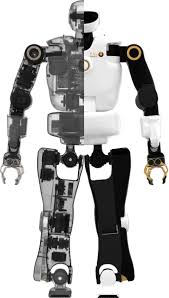TALOS
PAL RoboticsResearch
Available
Overall Score87/100
>$300,000
Advanced humanoid research platform designed for academic and industrial research. Features robust construction, advanced sensors, and high-precision actuators for demanding research applications.
Height:1.75m
Weight:95kg
Released:2017
Last Tested:2017-01-01

Demo Video
TALOS Performance Profile
Robot
Human Baseline
78
Mobility
(20%)
70
Explosive
(10%)
92
Stability
(15%)
75
Dexterity
(20%)
85
Perception
(15%)
70
Language
(10%)
90
Safety
(5%)
65
Energy
(5%)
85
Generalization
(5%)
80
Maintenance
(5%)
Specifications
Height1.75m
Weight95kg
Degrees of Freedom32 (full body coordination)
Actuator TypeHigh-precision research-grade actuators
Power SourceHigh-capacity battery system
Operating Time2-4 hours continuous operation
SensorsIMU, force/torque sensors, cameras, LiDAR
ComputingROS-based real-time control system
Key Features
High-end research platform for universities
Robust 95kg construction for durability
Advanced sensor suite for research applications
Open-source ROS-based software stack
Proven track record in research institutions
Test Info
Last Tested
2017-01-01
Test Location
PAL Robotics Research Facility
Certifications
Research Platform StandardsEU Safety Certification
Detailed Test Results
10-Dimensional EvaluationWalking Speed
75/ 100m/s
Stable walking at moderate speeds, optimized for research
Performance vs Human Baseline75%
Test Method: Speed performance test
Endurance
70/ 100hours
Good battery life for research sessions
Performance vs Human Baseline70%
Test Method: Endurance assessment
Agility
90/ 100score
Excellent balance and movement control for research
Performance vs Human Baseline90%
Test Method: Agility course test
Category Average:78/100
Weight:20%
Human Baseline:100/100
10-Dimensional Test Protocol
All tests conducted according to the comprehensive humanoid robot evaluation standards with human performance as baseline (100%). The new system evaluates: Mobility (20%), Dexterity (20%), Stability (15%), Perception (15%), Explosive Power (10%), Language (10%), and four supporting dimensions (5% each).
Advantages
Proven research platform used by top universities
Robust 95kg construction for demanding research
Open-source ROS software stack
Advanced sensor integration capabilities
Excellent balance and stability control
Limitations
Very high price point limits accessibility
Heavy weight reduces agility compared to lighter robots
Requires specialized technical expertise to operate
Limited commercial application focus
Complex maintenance requirements